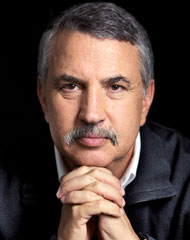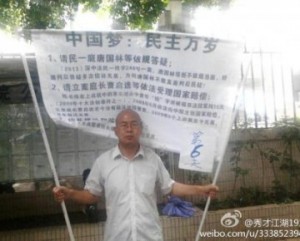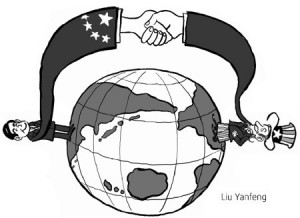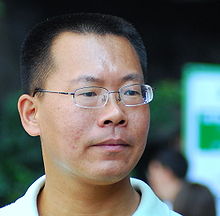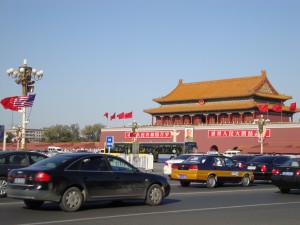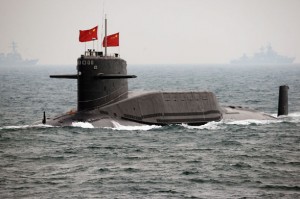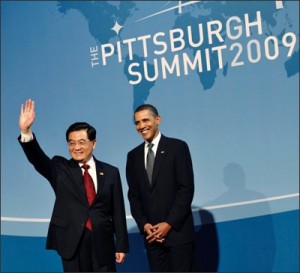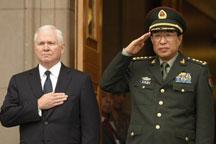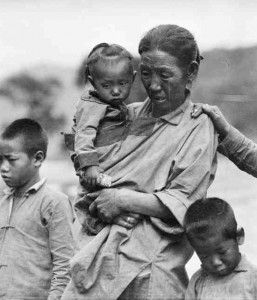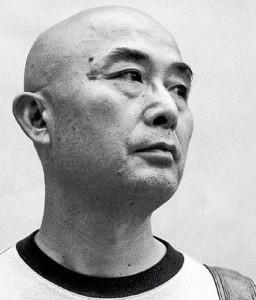Originally posted on The Huffington Post
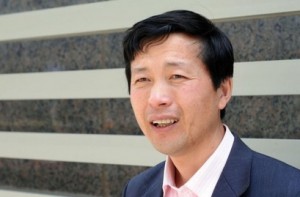
Rights-Defending Lawyer, Tang Jitian
The Chinese government has tried to break Tang Jitian’s spirit. Failing, it now seeks to break his body. Tang, a Chinese human rights lawyer, was forcibly abducted from his home on Wednesday, February 16 by the Beijing police. Five days later, in contravention of Chinese law, Tang’s whereabouts remain unknown to his family, friends, and other human rights lawyers who desperately await some news of him. Tang’s wife, after waiting at the police station for over four hours, was not permitted to see her husband and not informed of his whereabouts. Tang’s “crime” in all of this: seeking to uphold individual’s legally-guaranteed rights and hold the State to its promise of a rule of law.
When Tang Jitian (pronounced Tang Gee Tea-ann) emerges from this unlawful and forced seclusion, he may be badly beaten, tortured and abused. Soon after his abduction on Wednesday, Tang was transferred to the Beijing Public Security Bureau (PSB), an outfit that has been assigned the task of suppressing China’s nascent human rights movement. Violence is a necessary part of the PSB’s mandate: it provides a very physical signal to other human rights lawyers what awaits them if they become too vocal, organized, or, ironically, too successful in bringing cases to protect citizen’s rights. But this State-sanctioned violence is outside the limits of the law, and makes one wonder that if, by attacking these rights-defending lawyers (in Chinese, weiquan lawyers), the Chinese government is really committed to a “rule of law” society or if the use of such language by Chinese officials is a mere mirage.
The Breaking of a Body: Tang Jitian’s Potential Fate While in PSB Custody
Human rights lawyer Gao Zhisheng (pronounced Gao Zhi-sheng) likely serves as the most potent reminder of the
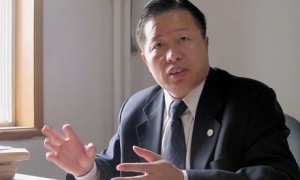
Human Rights Attorney, Gao Zhisheng
lawlessness of the PSB. In 2001, Gao was listed by China’s Ministry of Justice as one of the country’s top-ten lawyers for his work representing victims of medical malpractice and farmers who were denied just compensation for their land. But as Gao took on more controversial cases – particularly defending Falun Gong practitioners, a quasi-religious organization that the Chinese government perceives as a real threat to its power – government respect for his work quickly faded. In December 2006, Gao was convicted of subversion and was given five years probation to be served from his home. However, in February 2009, Gao was abducted from his home by the police. This was the second time he was abducted, the first in 2007 where he was tortured for over 50 days. But this time, Gao’s abduction would be for much longer. For over fourteen months, he was not heard from and no one knew where he was. In April 2010, Gao emerged from seclusion only to be abducted again only two weeks later. During the time he was free, he was able to report to the Associated Press the torture he underwent while in police custody.
What awaits Tang may be similar – 48 hours of continuous beatings, various forms of physiological torture, wet towels over one’s face to give the feeling of suffocation – or even worse. Unlike Gao Zhisheng, who is well known in the international community, or Teng Biao, a famous Chinese law professor and human rights activist who, because of his status, experienced a less violent beating when he was taken into custody for a few hours by police last December, Tang does not have such connections to protect him. Without such an international cache like Teng Biao, Tang is an easy target for the Chinese security apparatus and will likely be used to violently symbolize the PSB’s power over the human rights lawyers.
Trying to Break a Spirit: Tang Jitian’s Disbarment
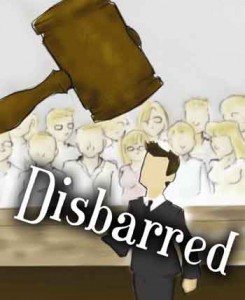 Wednesday’s abduction was not the first time that Tang has been on the Chinese government’s radar. In May 2010, because of his defense of a Falun Gong practitioner in Sichuan province, the Beijing Bureau of Justice – the government body that manages the legal profession in Beijing – disbarred Tang from the practice of law. Ostensibly arguing that Tang violated courtroom rules, the Beijing Bureau of Justice’s decision was largely seen as political. Similar to the United States, disbarment in China is reserved for those lawyers who commit a crime. Tang was the first lawyer to be disbarred for what merely appeared to be zealous advocacy.
Wednesday’s abduction was not the first time that Tang has been on the Chinese government’s radar. In May 2010, because of his defense of a Falun Gong practitioner in Sichuan province, the Beijing Bureau of Justice – the government body that manages the legal profession in Beijing – disbarred Tang from the practice of law. Ostensibly arguing that Tang violated courtroom rules, the Beijing Bureau of Justice’s decision was largely seen as political. Similar to the United States, disbarment in China is reserved for those lawyers who commit a crime. Tang was the first lawyer to be disbarred for what merely appeared to be zealous advocacy.
Since his disbarment, Tang has had no way to economically support himself, relying solely on the kindness of other human rights lawyers. Such a blow has had its impact and more recently, Tang had become depressed about his situation, although still very active in the human rights movement. One would have thought that this would have been sufficient for the Chinese government – that by taking away Tang’s livelihood, it would not seek to detain him. One would also think that such action would be unnecessary: Tang’s disbarment was a clear signal to other human rights lawyers that the State could use vague provisions of the law to disbar them and deny them their raison d’etre. But it appears that disbarment was not punishment enough for the PSB.
Why Abduct Tang Jitian Now? China’s Rule of Law Regression
The immediate cause of Tang’s abduction relates to the recent house arrest and abuse of another human rights lawyer,
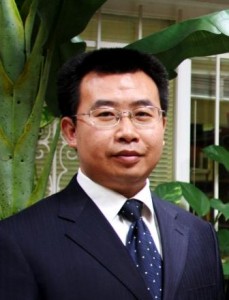
Human rights lawyer, Jiang Tianyong
Chen Guangcheng (pronounced Chen Gwang-chung). Chen, a blind, self-taught lawyer who represented women forced into abortions by their village government, has been under house arrest since he was freed from prison in September 2010. Last week, Chen and his wife were reportedly beaten after they leaked an hour-long video of their daily surveillance to the U.S.-based human rights and religious group, China Aid (for the video, click here). On Wednesday afternoon, Tang Jitian had lunch with a group of Beijing human rights lawyers to discuss what the group could do to support Chen. Soon after this brain-storming session, Tang was abducted. Additionally, another participant of the Wednesday lunch group has also been abducted. On Saturday, February 20, 2011, human rights lawyer Jiang Tianyong (pronounced Gee-ong Tea-ann young) was taken away in an unmarked van, only days after he was roughed up while in police custody.
But Tang and Jiang’s belief that the law should be followed and individuals’ rights should not be trampled on by the State is the real reason for his abduction and likely abuse at the hands of the PSB. Over the past few years, China’s human rights attorneys have become more organized, using modern technology to quickly communicate with each other, and increasingly vocal, demanding that the government abide by its own laws when it comes to the people’s civil rights and civil liberties. Instead of responding positively to these developments – developments that largely symbolize a growing rule of law society and an emerging civil society – the Chinese government and the Chinese Communist Party (CCP) has further entrenched its authoritarian rule and has used increasingly sever measures to break these human rights lawyers. While Chinese human rights lawyers’ cases would be everyday affairs for public interest lawyers elsewhere in the world, the CCP views these lawyers as a threat to their one-party rule and the PSB views them as a threat to its all-inclusive, and many times illegal, policing methods. Based upon the recent abduction of Tang Jitian and Jiang Tianyong, the PSB and the CCP will do whatever it takes to suppress these human rights lawyers.
On Saturday, while rumors were circulating on the internet that China itself was to have a “Jasmine Revolution” following the events in the Middle East, a Chinese rights activist tweeted that the Chinese government detained twenty-one other human rights attorneys: Zhu Yufu, Liao Shuangyuan, Huang Yanming, Teng Biao, Ran Yunfei, Li Tiantian, Liu Guohui, Ding Mao, Lu Yongxiang, Xiao Yong, Zhang Jianping, Shi Yulin, She Wanbao, Li Yu, Lou Baosheng, Wei Shuishan, Zhang Shanguang, Li Xiongbing, Xu Zhiyong, Huang Yaling, and Li Bo. Many may suffer physical abuse at the hands of the PSB. Some already have.
Why Should Anyone Care?
I met Tang Jitian when I was last in China and was impressed, not just with his bravery, but also with understanding of his role in pushing the Chinese government to truly commit to a rule of law. If human rights lawyers are suppressed now he told me, there will be no one to take over the movement. Tang is right and breaking the movement appears to be one of the goals of the Chinese government. By openly subjecting human rights attorneys to constant surveillance, disbarment, psychological threats, and physical abuse, the Chinese government hopes that once this generation of human right lawyers pass, no younger lawyers will dare to take up the mantle; the repercussions are too severe.
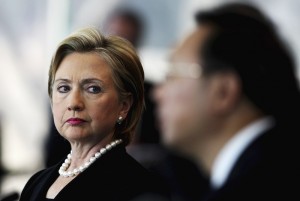
Secretary of State Hillary Clinton to take a hard line on human rights
But the question remains, will the rest of the world allow this? Last month, the Obama Administration impressed many by repeatedly raising the issue of human rights with Chinese President Hu Jintao. Just days before Hu’s arrival in Washington, D.C., Secretary of State Hillary Clinton bluntly discussed the plight of China’s human rights lawyers, stating that the United States will expect China to fulfill its own promise of rule of law: “America will continue to speak out and to press China…when lawyers and legal advocates are sent to prison simply for representing clients who challenge the government’s positions….” The time has come for the United States to back-up that statement.
The Obama Administration has already expressed its concern with the treatment of Chen Guangcheng. But it cannot forget the less known advocates like Tang Jitian and Jiang Tianyong – without some form of international recognition of his situation the PSB will believe it has the cover to do with Tang and Jiang what it wants. Furthermore, the Obama Administration needs to see the Chinese government’s recent reaction as an affront to a “rule of law” and also needs to comment on the importance of not just a “rule of law” in China but on the existence of a vibrant public interest law bar. Human rights lawyers directly challenge the State in order to protect individual’s legally-guaranteed rights; only when these lawyers are able to more freely function in society will China have any meaningful rule of law.
A meaningful rule of law in China is not just an abstract principle for Americans. As more Americans do business in China and as the U.S. government seeks to increase the number of students studying in China to over 100,000, rule of law in China will become an everyday concern. Last year’s arrest and prosecution of Australian citizen and Rio Tinto executive Stern Hu and the recent conviction of U.S. citizen and geologist Xue Feng embody the importance of China’s rule of law development for Americans. The Obama Administration needs to publicly condemn the Chinese government’s recent suppression of human rights lawyers, call for the release of Tang Jitian, and frankly question the Chinese government’s commitment to a rule of law. Tang and Jiang’s safety depends on it.
 Barboza in the N.Y. Times – have been kept a secret, the lavish spending and mistresses of some government officials has been reported. And Ji’s post in no way rises to the damning level of Barboza’s well-documented accumulation of wealth through government ties. Unlike Barboza’s series of articles which were censored in China, Ji’s posts are still on the internet and she is even receiving media attention. The reason: because she is not a threat to the ruling elite or necessarily their ways. She is not a whistleblower; she is not a game-changer; she is a woman scorned.
Barboza in the N.Y. Times – have been kept a secret, the lavish spending and mistresses of some government officials has been reported. And Ji’s post in no way rises to the damning level of Barboza’s well-documented accumulation of wealth through government ties. Unlike Barboza’s series of articles which were censored in China, Ji’s posts are still on the internet and she is even receiving media attention. The reason: because she is not a threat to the ruling elite or necessarily their ways. She is not a whistleblower; she is not a game-changer; she is a woman scorned.  On Facebook
On Facebook By Email
By Email 